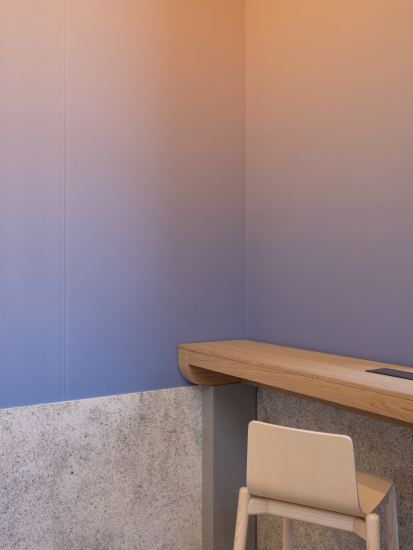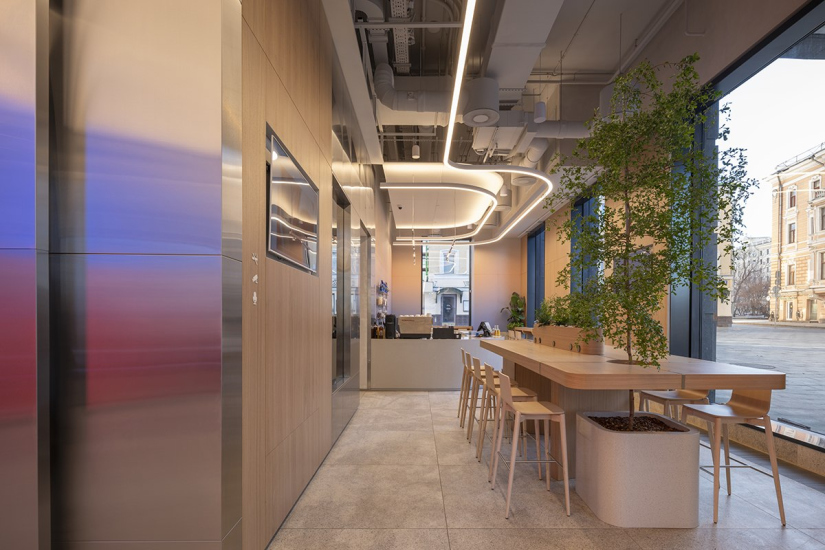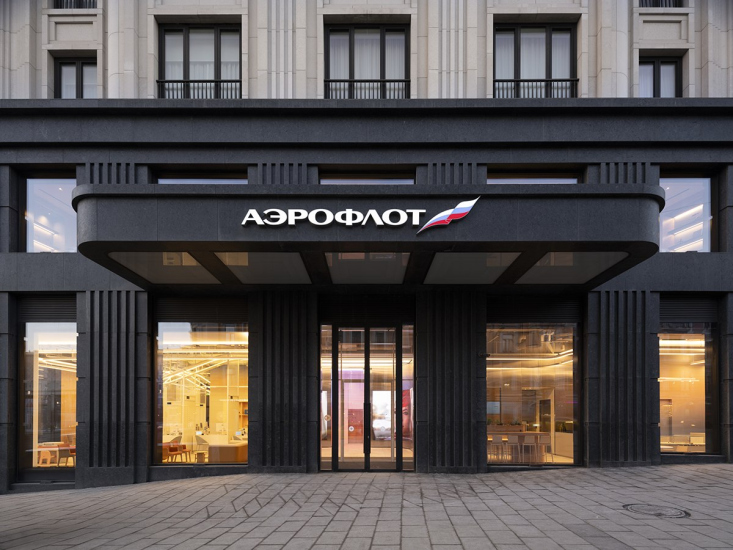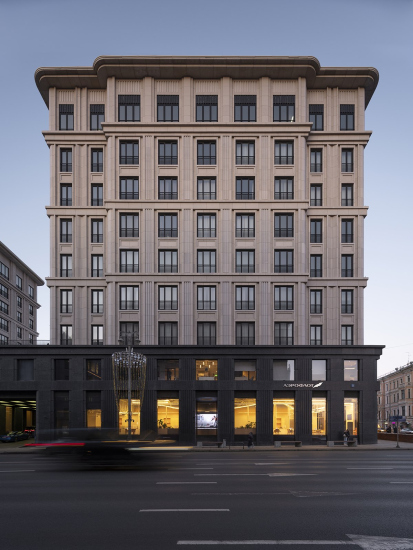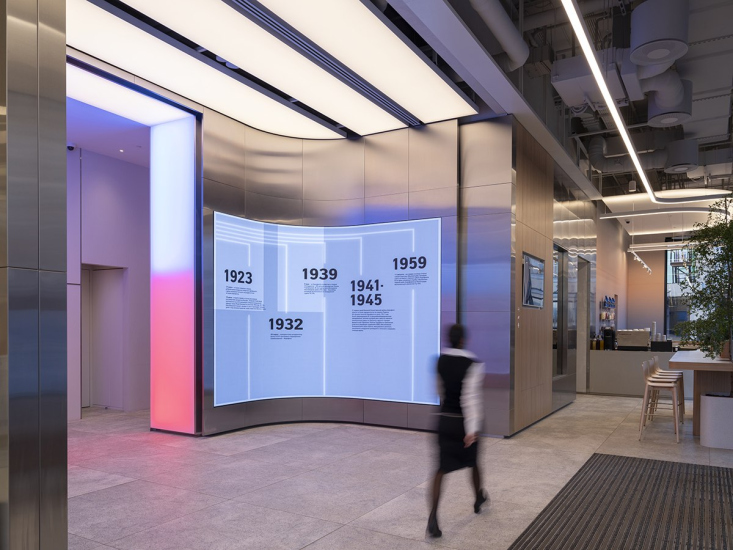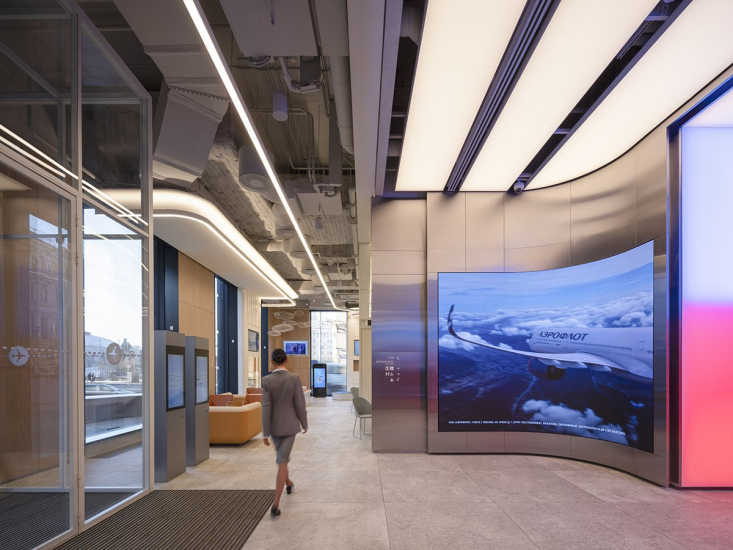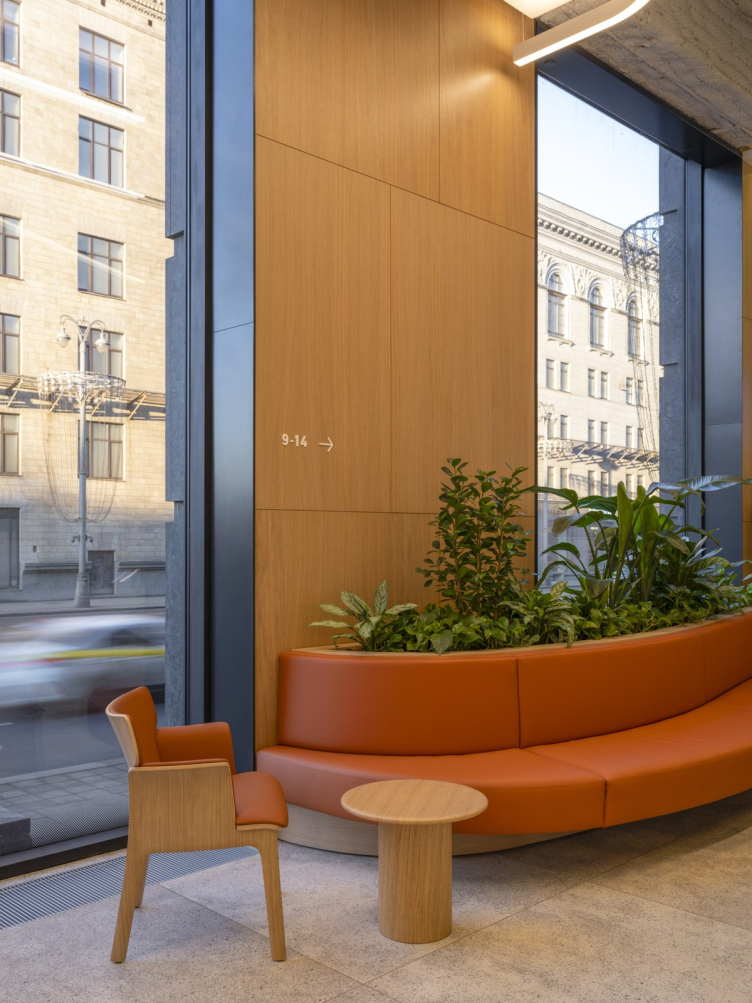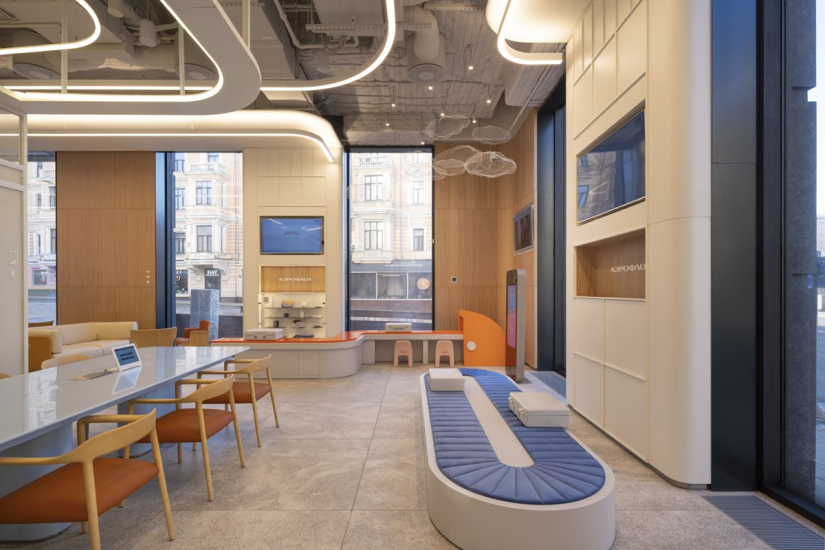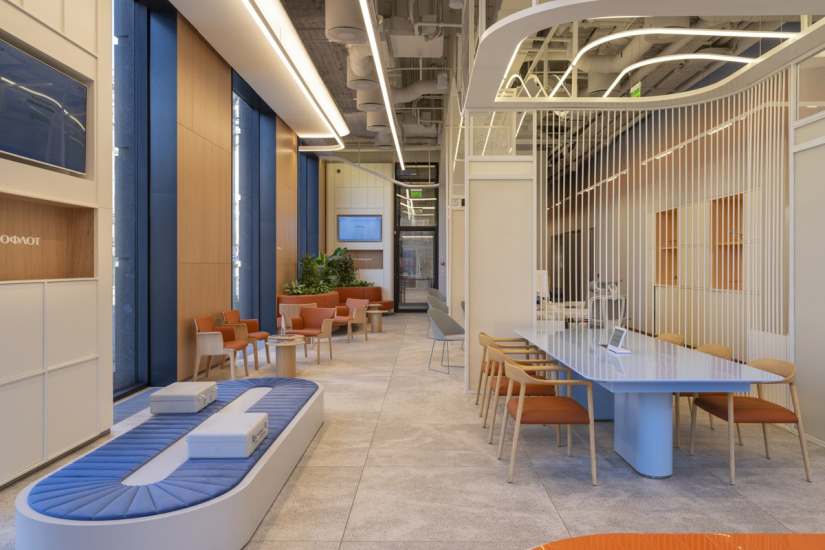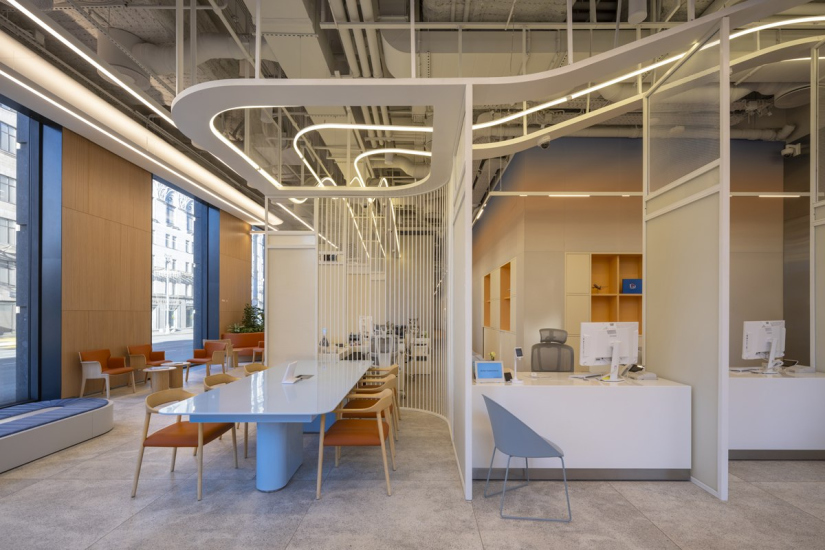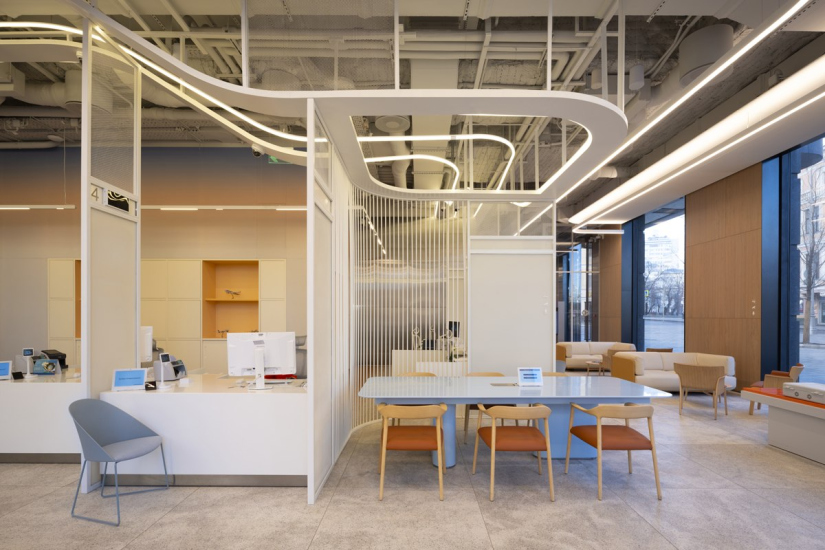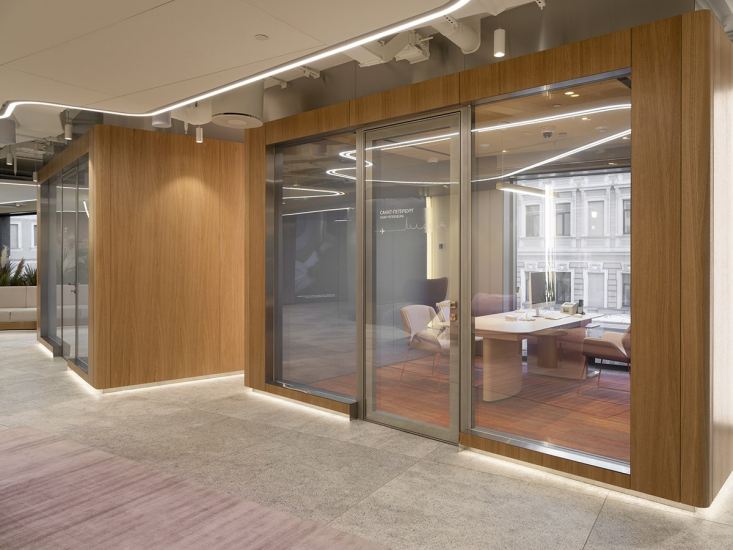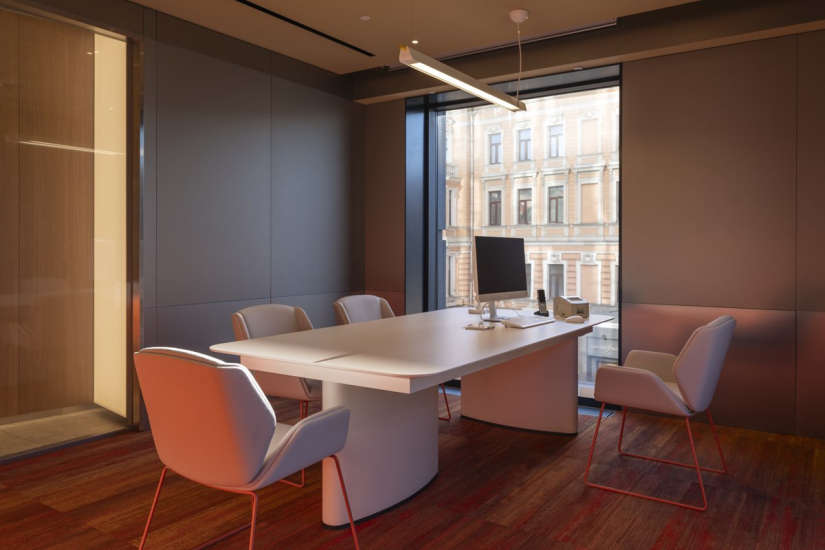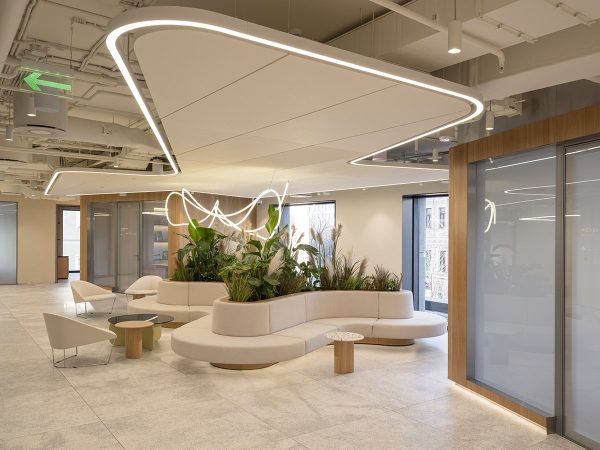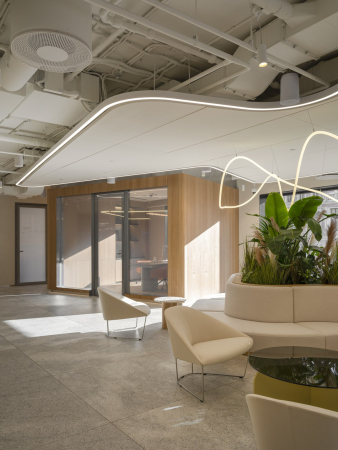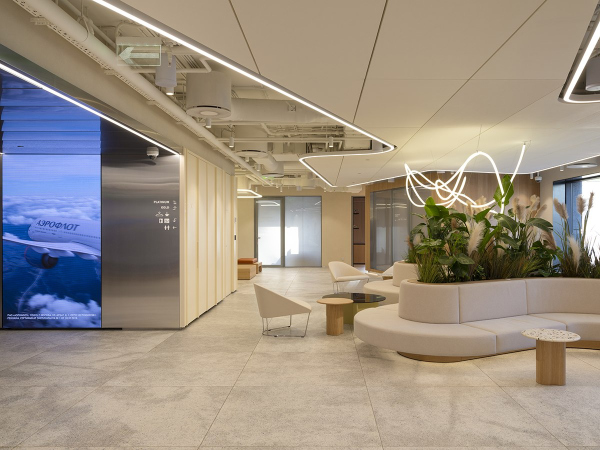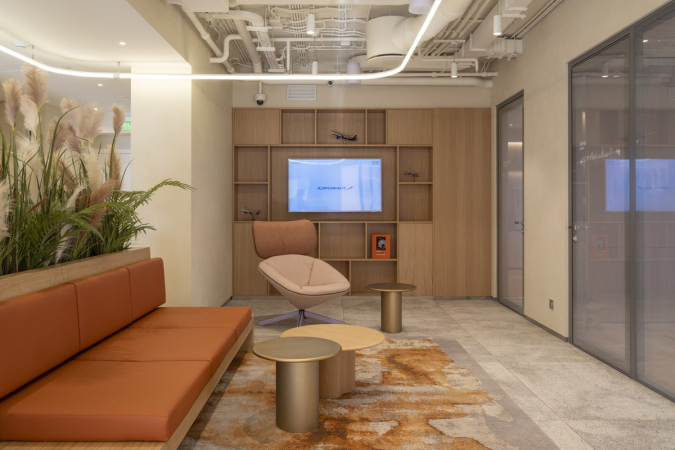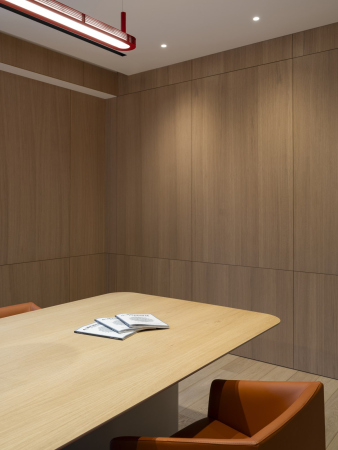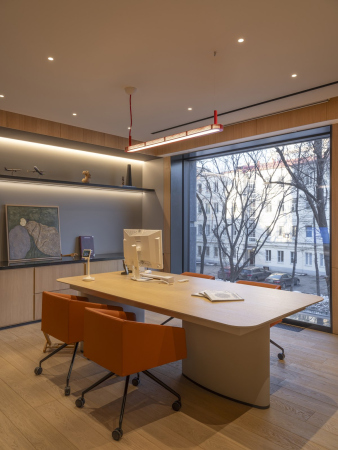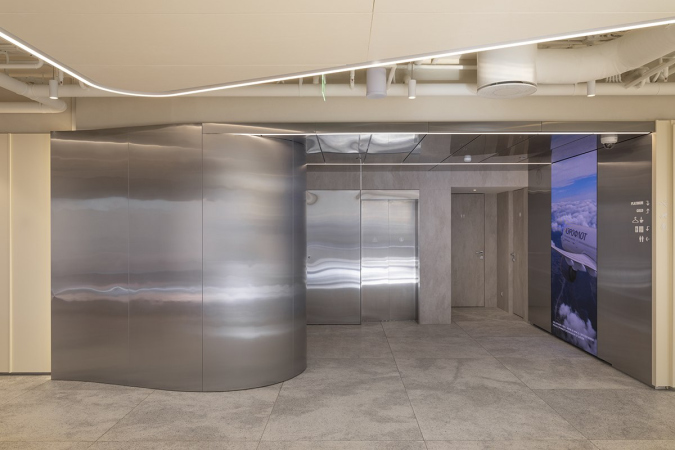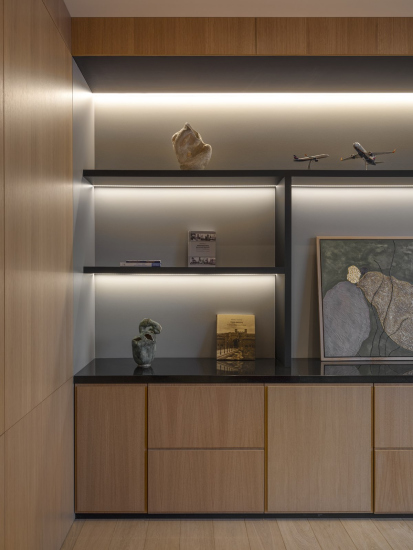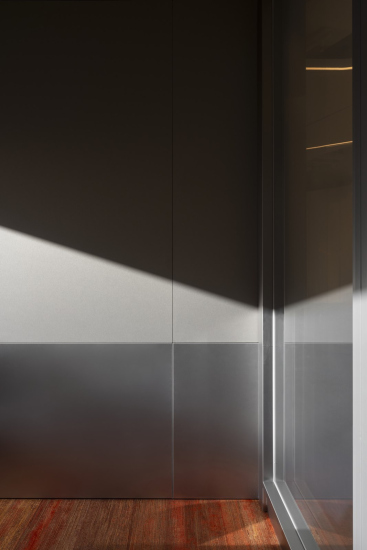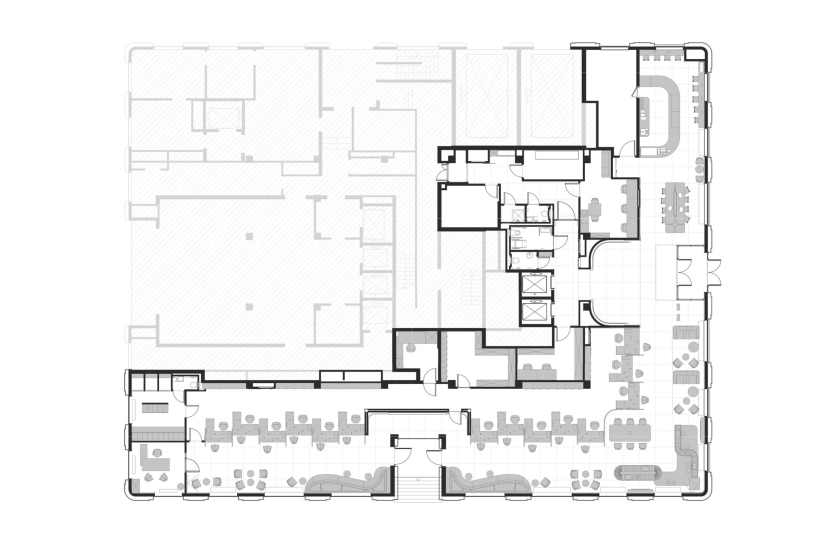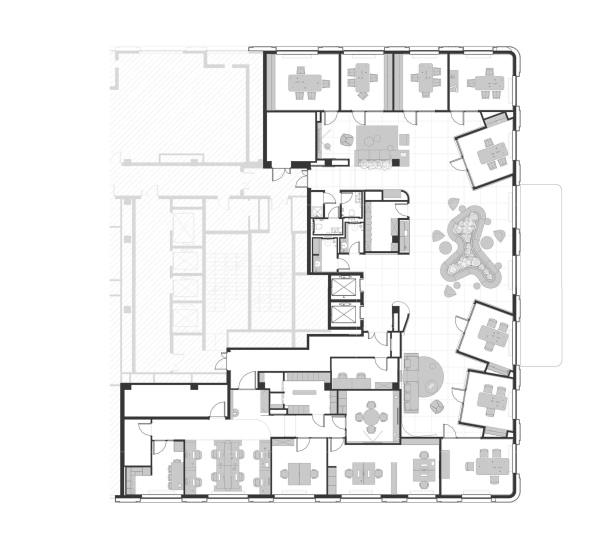The interior design contrasts sharply with the building’s exterior. While the façade of Vesper Tverskaya nods to the grand, dense Stalinist classicism – helping maintain the overall rhythm and character of the street – it’s clear that the image of a modern airline couldn’t and shouldn’t follow that canon. Instead, the architects opted for a completely opposite paradigm: lightness, brightness, and abundant glass. The only hint of continuity with the neighboring building’s façade is in the rounded corners – though, to be fair, we should acknowledge that rounded corners are currently a widespread trend.
In its press release, T+T refers to a “WOW effect.” That effect is most palpable in the office’s entrance area: after pushing open the heavy front door from the street, you first find yourself inside a glass vestibule, then you proceed into a spacious semi-oval lobby. Two curved walls clad in matte metal seem to embrace you, while two enormous plasma screens – also curved to match – are embedded in them. The two screens play a continuous loop of videos about Aeroflot’s destinations and, more broadly, about the vastness of the country itself.
This entry area sets the tone for the rest of the space: it signals that Aeroflot is a modern, tech-savvy company – and that every interaction with it is meant to be a pleasant adventure (though, as we know from experience, that’s not always guaranteed).
After taking an electronic queue ticket, you walk into the main service hall, which stretches along Tverskaya-Yamskaya Street and is divided into two major zones: a waiting area and the Aeroflot employees’ workstations. Everything that’s designed for clients all but shouts comfort – plush pumpkin-colored armchairs and sofas, whitewashed oak coffee tables, and several “oases” with lush green plants (a team of specialists services these indoor gardens weekly). It’s all thoroughly contemporary and eco-friendly.
Aeroflot flagship office
Copyright: Photo © Daniel Annenkov / provided by Т+Т Architects
The navigation system is especially well thought out: it’s clear that the font choices, icon sizes, and placement of signs on the walls – right at eye level – were carefully planned by the architects in advance, so the office staff wouldn’t have to tape up handwritten signs later.
A separate kids’ zone, located right at the corner of Oruzheiny Lane and Tverskaya-Yamskaya, features two miniature baggage carousels modeled after the real thing in airports – one blue (a small couch you can lie on) and one orange (a low table). Little toy suitcases sit atop the belts, containing video games. To tug at parents’ heartstrings just a bit more, the kids’ chairs are marshmallow-colored, and a handful of delicate wireframe clouds float overhead. Come to think of it, the clouds, in fact, are the only real “art installations” in the entire office.
As for the work area itself, white dominates in it. Individual workstations aren’t enclosed with solid walls, but rather with slatted dividers and light, opaque mesh panels, reminiscent of garden pergolas or folding screens. The top sections of the partitions are finished with fine mother-of-pearl and metallic mesh. The overall effect is a space that feels light and airy – or, possibly, one that’s just smartly budgeted.
A particular highlight is the design of the employees’ working desks: slots for computers, keyboards, and phones are built into the structure itself, leaving the work surface completely clear. The absence of the typical office clutter is another big plus in the space’s favor.
If you are a corporate client of Aeroflot or hold a Gold or Platinum card, you’ll be invited to the second floor, which you can reach via a seafoam-green elevator. The second floor differs from the first in its layout: much of the space is devoted to meeting rooms. These rooms are set at an angle, with their windows facing the Mayakovsky monument. Their interior walls are made of special glass that turns from transparent to frosted at a gentle push of a button.
In addition to the meeting rooms, there’s a waiting area with its own indoor garden (crowned by a glowing tubular art installation) and a couple of pink velvet sofas.
The office’s lighting system also deserves a special mention: it follows its own internal logic and evokes the vapor trails of airplanes in the sky.
All in all, Aeroflot’s new headquarters strikes an optimum balance: it’s contemporary, mildly avant-garde, and pleasantly understated. Thankfully, it avoids heavy-handed solutions – there are no model airplanes or cross-sectioned fuselages. The interior design doesn’t scream for attention; after a week, you may not remember every detail, but you’ll remember that the space did feel modern and comfortable.
The only questionable – or at least debatable – feature, not visible in the promotional photos, is the ceiling. The architects opted to leave it exposed rather than cover it up. At first, this is surprising, since it contrasts with the Stalin-era classicism of the building and the softness of the terracotta, metallic blue, and wood. But the exposed-ceiling approach has become standard in contemporary public interiors, and the designers’ logic is clear: a dropped ceiling would have killed the feeling of spaciousness. So everything above the wall paneling is painted white and left on view. Together with the massive picture windows, this gives the space a modern and wonderfully airy atmosphere.
One more question to the interior design is the absence of complex or rare artworks. Of course, you wouldn’t hang a Deineka or Pimenov in the children’s play area (even if you could find and afford them), but on the second floor, a few unique pieces of painting or sculpture wouldn’t seem to be out of place.
The final question is: why at all open a physical airline office in an age when almost everyone buys tickets online? Indeed, most airline ticket offices around the world closed down some twenty years ago. And yet, in 2024, Emirates reopened a flagship location in London. In that office, potential customers can test out luxury seats, purchase branded souvenirs – and, of course, buy airline tickets.
Such decisions are usually aimed at strengthening a brand’s position in the premium segment. A physical office offers tailored services for VIP clients and corporate customers: assistance with complex itineraries, group bookings, and the swift handling of nonstandard situations – like rebooking expensive tickets – which is especially crucial in the world of business aviation.
These offices also serve a marketing role, functioning as physical showcases for the brand. While most ticket sales still happen online, personal interaction remains critical for high-revenue clients and tour operators, many of whom continue to rely on offline channels.
Judging by the number of people in Aeroflot’s new office on an average weekday afternoon, there’s clearly still demand for this kind of service in Russia.




